Bruce Podobnik is Associate Professor of Sociology at Lewis and Clark College. He is co-editor (with Thomas Reifer) of Transforming Globalization: Challenges and Opportunities in the Post 9/11 Era, as well as a number of articles on environmental and social movement topics.




Contents
Vii
ix
1 1 1
List of Illustrations
1.1 Global Energy Shifts, 1800-2000 5
1.2 World Commercial Energy Production, 1800-2000 6
2.1 Expansion of the Coal System, 1800-1860 29
2.2 International Coal Exports, 1850-1913 32
2.3 Five Largest Coal Producers, 1800-1913 35
3.1 Five Largest Oil Producers, 1860-1913 56
3.2 Five Largest Producers of Hydroelectric Power, 1890-1913 63
4.1 International Coal and Petroleum Prices, 1860-1950 76
4.2 Export Ratios for Coal and Oil, 1800-2000 79
4.3 Strikes in U.S. Coal and Oil Industries, 1880-1980 89
4.4 Mentions of Labor Unrest, Coal and Oil, 1890-1990 90
5.1 Commercial Energy Production and Consumption, 1860-2000 109
5.2 Per Capita Commercial Energy Consumption, 1860-2000 110
5.3 Per Capita Commercial Energy Consumption, 1950-2000 110
5.4 Per Capita Commercial Energy Consumption Relative to USA, 2000 111
5.5 World Commercial Energy Consumption by Quintiles 111
6.1 Discoveries of Oil Reserves, 1900-1988. 5-Year Moving Averages 116
6.2 Per Capita Energy Consumption in Selected Countries, 1950-1980 126
6.3 Labor Unrest and Price Shocks in the International Petroleum System 132
7.1 Petroleum Production Forecasts Based on Varying Estimates of Recoverabe World Oil Reserves 144
7.2 TEA State Expenditures of Energy R&D, 1974-1998 151
7.3 Projected Global Energy Shifts 161
Acknowledgments
 here are many people who assisted me in completing this study. First, I would like to sincerely thank Beverly J. Silver for her support. It was _ while working with Professor Silver at Johns Hopkins University on a research project examining patterns of labor unrest and capital mobility that I initially formulated my research topic. Not only was she of crucial assistance during the earliest stages of my research, but Professor Silver provided guidance throughout all subsequent stages as well. I extend my gratitude to her for assisting me at every step of my work.
here are many people who assisted me in completing this study. First, I would like to sincerely thank Beverly J. Silver for her support. It was _ while working with Professor Silver at Johns Hopkins University on a research project examining patterns of labor unrest and capital mobility that I initially formulated my research topic. Not only was she of crucial assistance during the earliest stages of my research, but Professor Silver provided guidance throughout all subsequent stages as well. I extend my gratitude to her for assisting me at every step of my work.
I would also like to thank Christopher Chase-Dunn for helping me bring this project to completion. An opportunity I had to collaborate with Professor Chase-Dunn on a project examining dynamics of hegemonic rivalry allowed me to develop my understanding of world-systemic patterns of geopolitical competition. Professor Chase-Dunn also provided particularly insightful advice on the final version of this study.
There are many other people who helped me finish this book. I would like to thank Giovanni Arrighi, David Harvey, Frederick Buttel, Helmut Anheier, Melvyn Kohn, and two anonymous reviewers for commenting on different versions of this study. I am also grateful for the support of my editor, Peter Wissoker, who remained patient as I worked on revisions. For providing friendship and support, I would like to thank Mirella, Nhan, Mahua, Melanie, Rick, Karl, Tay, Amy, Larry, Mia, Yona, and everyone at the Zen Community of Oregon. And, finally, I am truly thankful for the support of my family. I wish my mom, Judy, could be here to read this book, but I am happy that my dad, Don, and my sisters, Kim and Kerri, will finally be able hold this book in their wonderful hands.
Global Energy Shifts
Global Energy Shifts in World
Historical Perspective
 n the latter part of the nineteenth century, the citizens of Great Britain faced what seemed to be a bleak energy future. Commentators argued that the country's most important energy resource-coal-was destined to run out within a generation or so. At the same time, they argued that there was no viable alternative to coal. Two primary solutions to Britain's perceived energy crunch were therefore offered: Military strategists were urged to undertake expeditions to seize control of coal reserves in foreign lands, and companies were urged to drive their workers harder to increase domestic production of the resource. But these efforts were met with resistance from other colonial powers and from unions inside Britain. Meanwhile, cities across the nation grew increasingly choked with the sulfurous pollution flowing out of factories, railroads, and homes.1
n the latter part of the nineteenth century, the citizens of Great Britain faced what seemed to be a bleak energy future. Commentators argued that the country's most important energy resource-coal-was destined to run out within a generation or so. At the same time, they argued that there was no viable alternative to coal. Two primary solutions to Britain's perceived energy crunch were therefore offered: Military strategists were urged to undertake expeditions to seize control of coal reserves in foreign lands, and companies were urged to drive their workers harder to increase domestic production of the resource. But these efforts were met with resistance from other colonial powers and from unions inside Britain. Meanwhile, cities across the nation grew increasingly choked with the sulfurous pollution flowing out of factories, railroads, and homes.1
Accounts at the time argued that Britain was destined to lose its global preeminence as its coal reserves disappeared and as social and environmental problems originating from the industry tore at the fabric of British society. In the eyes of many commentators, the resource that had once fueled the rise of the nation's fortunes had begun to contribute to the weakening of the British Empire.
Shifting forward in time, intriguing parallels between the "coal panics" that swept through Britain in the latter part of the nineteenth century and the "oil panics" that grip the world today are clear. The world's oil infrastructure is threatened by insurgencies in many countries, and there are widespread fears that reserves of oil will be unable to meet world demand within a decade or so. At the same time, many analysts claim that there are few viable alternatives to oil. Likewise, the recommendations that flow from this view rather eerily echo those proposed in the nineteenth century. Governments across the world are again being urged to seize military or commercial control over key oil reserves, and local officials in many countries are being urged to remove constraints on domestic oil extraction to maximize production.2
But resistance to these efforts is even fiercer today than it was in the nineteenth century. 011-producing countries like Saudi Arabia, Iran, and Venezuela are protecting their independence from external pressure. Meanwhile, social chaos is engulfing countries like Iraq, Nigeria, and Russia and undermining their ability to provide oil to the wider worldeconomy. Given these constraints, competition for oil reserves is escalating between large consumers like the United States, the European Union, and China. Underlying these pressures is a host of growing environmental dangers. From deteriorating local air quality to the many dangers posed by climate change, there is widespread consensus in the scientific community that overreliance on fossil fuels must soon end if ecological catastrophe is to be avoided.'

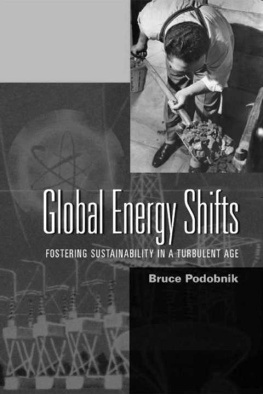

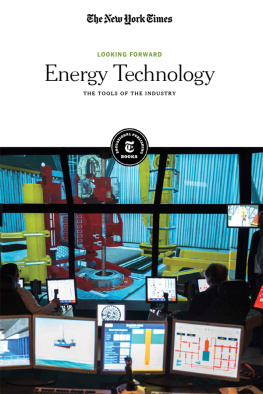
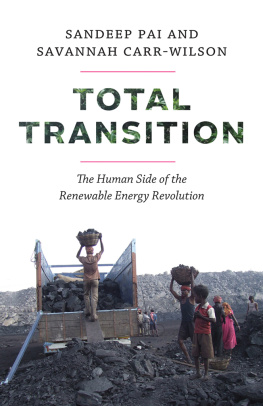
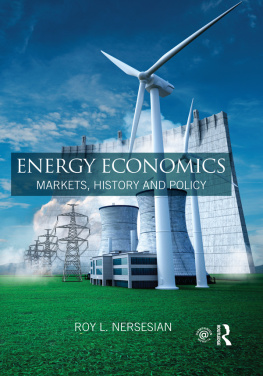
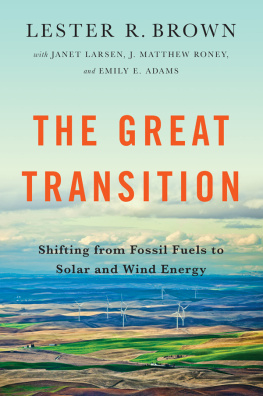
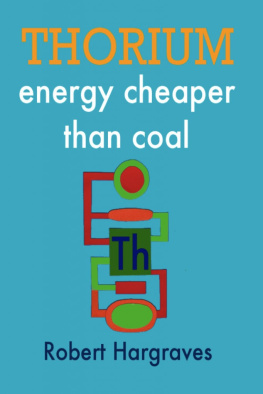
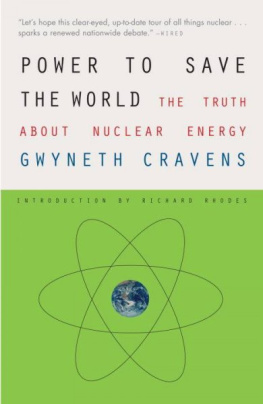




 here are many people who assisted me in completing this study. First, I would like to sincerely thank Beverly J. Silver for her support. It was _ while working with Professor Silver at Johns Hopkins University on a research project examining patterns of labor unrest and capital mobility that I initially formulated my research topic. Not only was she of crucial assistance during the earliest stages of my research, but Professor Silver provided guidance throughout all subsequent stages as well. I extend my gratitude to her for assisting me at every step of my work.
here are many people who assisted me in completing this study. First, I would like to sincerely thank Beverly J. Silver for her support. It was _ while working with Professor Silver at Johns Hopkins University on a research project examining patterns of labor unrest and capital mobility that I initially formulated my research topic. Not only was she of crucial assistance during the earliest stages of my research, but Professor Silver provided guidance throughout all subsequent stages as well. I extend my gratitude to her for assisting me at every step of my work.
 n the latter part of the nineteenth century, the citizens of Great Britain faced what seemed to be a bleak energy future. Commentators argued that the country's most important energy resource-coal-was destined to run out within a generation or so. At the same time, they argued that there was no viable alternative to coal. Two primary solutions to Britain's perceived energy crunch were therefore offered: Military strategists were urged to undertake expeditions to seize control of coal reserves in foreign lands, and companies were urged to drive their workers harder to increase domestic production of the resource. But these efforts were met with resistance from other colonial powers and from unions inside Britain. Meanwhile, cities across the nation grew increasingly choked with the sulfurous pollution flowing out of factories, railroads, and homes.1
n the latter part of the nineteenth century, the citizens of Great Britain faced what seemed to be a bleak energy future. Commentators argued that the country's most important energy resource-coal-was destined to run out within a generation or so. At the same time, they argued that there was no viable alternative to coal. Two primary solutions to Britain's perceived energy crunch were therefore offered: Military strategists were urged to undertake expeditions to seize control of coal reserves in foreign lands, and companies were urged to drive their workers harder to increase domestic production of the resource. But these efforts were met with resistance from other colonial powers and from unions inside Britain. Meanwhile, cities across the nation grew increasingly choked with the sulfurous pollution flowing out of factories, railroads, and homes.1